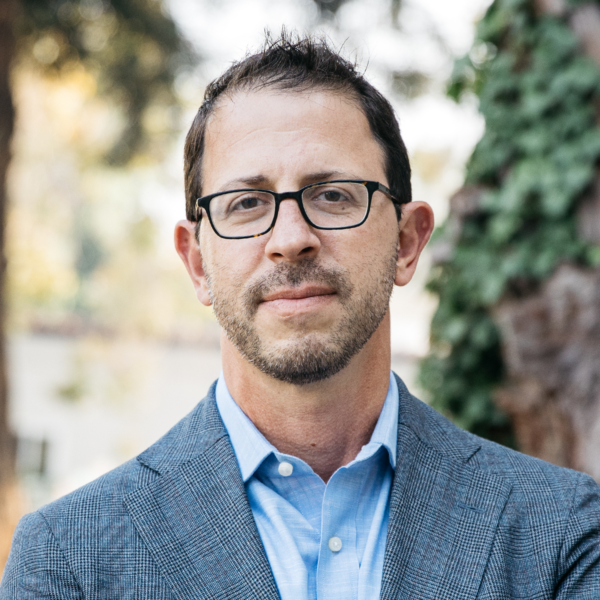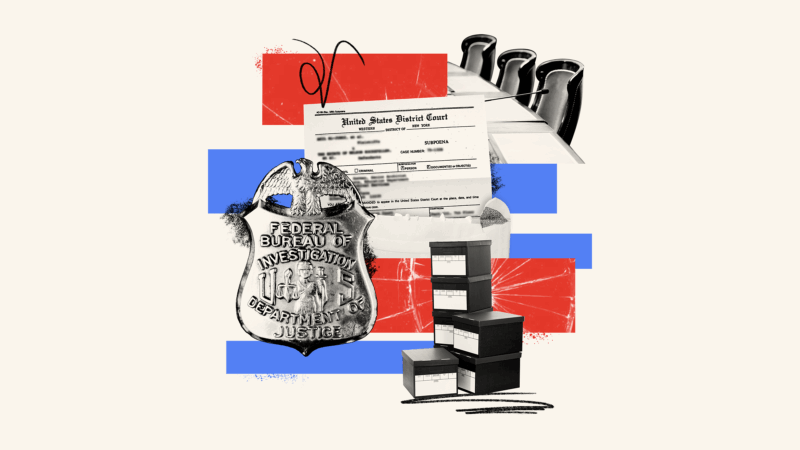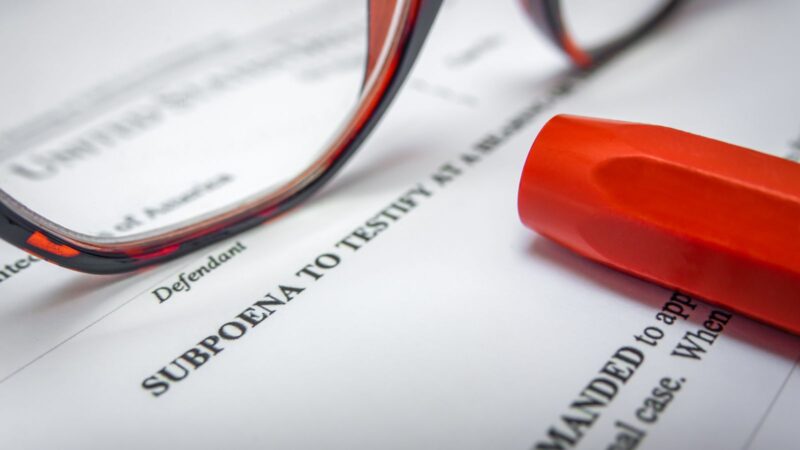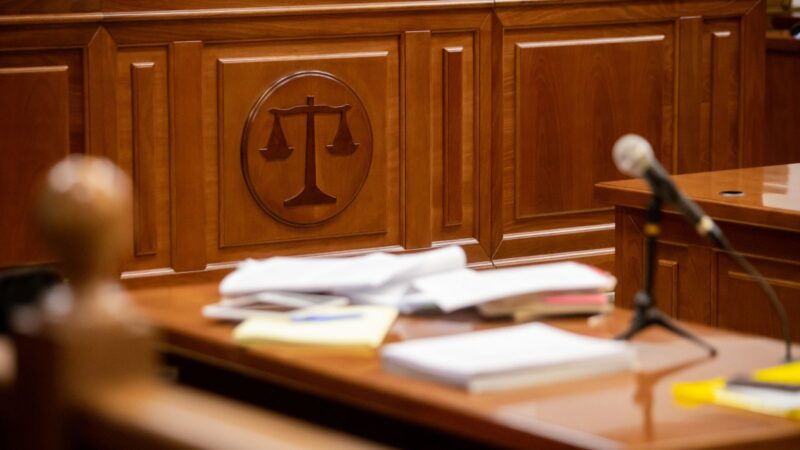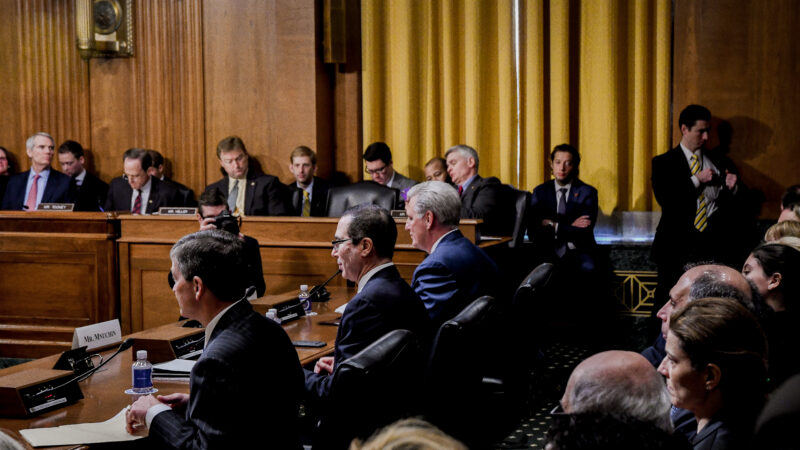Ian Bassin is co-founder and Executive Director of Protect Democracy. He previously served as Associate White House Counsel, where he counseled the President and senior White House staff on administrative and constitutional law.
Trump’s Indictment Is a Reminder: No One Is Above the Law
- May 16, 2023
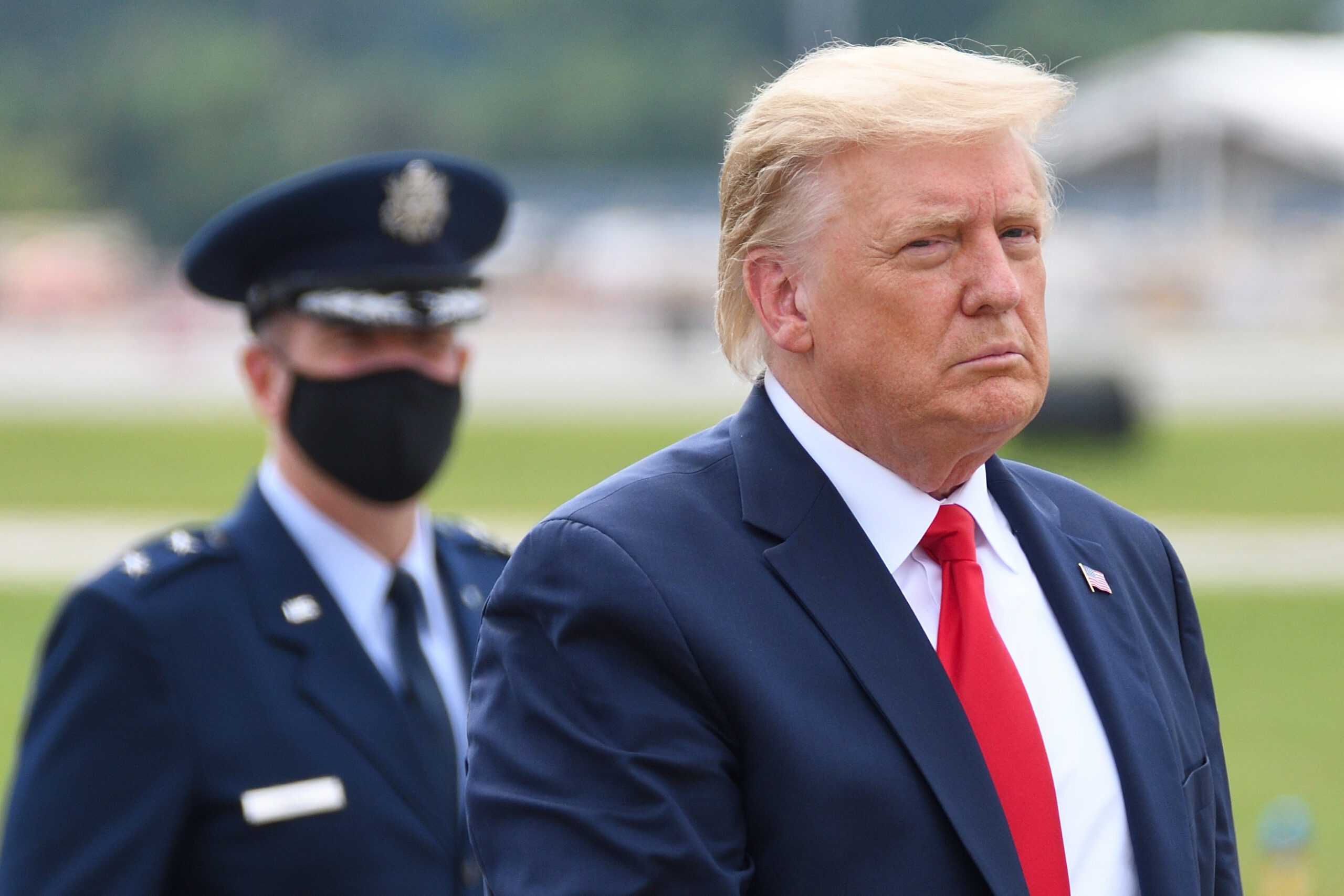
Antonella DeCicci, Aurora Fonseca, and Carrick Moon also contributed to this analysis.
From his earliest days in office, Donald Trump attempted to subvert our democracy by placing himself above the law. His actions reflected a belief that being President freed him from civil lawsuits, judicial orders, Congressional subpoenas, and criminal investigations. This aggrandizing of Executive power is a common tactic in the Authoritarian Playbook that modern autocrats use to dismantle democracies.
Protect Democracy formed to combat that playbook; we have therefore worked since our launch to uphold the principle that nobody is above the law — even and especially the President. And that if a President does break the law, our system must not shy away from holding them accountable. This body of work, which paved the way for Donald Trump’s indictment, includes:
First, in September 2017, we filed the only amicus brief in the defamation lawsuit brought against Trump by Summer Zervos, a contestant on The Apprentice. When Trump claimed he could not be sued, we assembled three constitutional scholars to make the same argument as they had 20 years prior in Clinton v. Jones, when they influenced the Supreme Court to rule that presidents can be sued for actions they took before holding office. After the trial court and the appellate court ruled in favor of Zervos, The Washington Post’s Jennifer Rubin pointed out that the “court agreed [with us], even using the same ‘no one is above the law’ formulation.” Time Magazine’s Molly Ball later echoed this point, writing that “it was a little-noticed case, but one the group thought could establish a dangerous precedent. In ruling Zervos’ suit could go forward, the court drew extensively on Protect Democracy’s arguments. It is the first time a court has ruled the President is subject to civil lawsuits in state court.”
In spite of this ruling (and a similar one in the Trump Foundation case, where we made the same argument), Trump continued to make increasingly brazen claims of presidential immunity. This all came to a head in 2020, in a case before the U.S. Supreme Court called Trump v. Vance. In that case, Trump declared himself absolutely immune from criminal investigation. The issue at hand may sound familiar: Trump sought to withhold financial records demanded by a Manhattan District Attorney who was investigating a possible hush-money payment that Trump made to Stormy Daniels ahead of the 2016 election.
Building on the briefs we filed at the state level, in the Vance case we organized an amicus brief from 37 conservative lawyers and former officials, including 20 former Members of Congress. Three signatories presented the brief’s arguments in the L.A. Times, and another, George Conway, wrote about it in the Washington Post, arguing that “no one in this country is above the law. The Supreme Court is about to teach that lesson.” He was right: in a 7-2 ruling adopting our position, the Court held that Trump’s “argument runs up against the 200 years of precedent establishing that Presidents… are subject to judicial process.” In fact, on the specific question of presidential immunity to criminal investigations, the Court wrote that it “unanimously conclude[d] that a President does not possess absolute immunity from a state criminal subpoena.” Justice Kavanaugh put it more simply, and in familiar terms: “no one is above the law. That principle applies, of course, to a President.” We later learned that Vance’s lawyers had found our brief to be the most helpful one in support of their case.
The ruling in Trump v. Vance both established key precedent around presidential immunity, and had the effect of enabling Manhattan prosecutors to access Trump’s financial records — leading to the indictment of his company and then ultimately, him personally. But these legal actions are not the only way we’ve played a part in Trump’s indictment. Since Fall 2020, we have also laid the groundwork for accountability processes; not just arguing that the former President is equally bound by the law, but also advocating that he be held accountable for abusing it.
Our accountability efforts have all stemmed from the report we published in December 2020, which looks to the lessons of history and international experience to present a range of accountability options — and to explain that when nations fail to pursue accountability projects, abuses of power are more likely to recur and worsen. The report has been used countless times since its publication by the media, NGOs, and government actors (e.g. The New York Times editorial board, The Washington Post, Bloomberg, Lawfare, Just Security, and NPR), to help guide the national response to events like January 6.
Drawing on the report’s lessons, after the insurrection on January 6, we helped play a role in supporting Trump’s second impeachment. Most notably, we organized a series of public letters from a leading and ideologically diverse group of legal scholars, rebutting Trump’s arguments that he could not be impeached after leaving office and that the First Amendment protected his actions on January 6. In the end, Trump was acquitted by the Senate; but he was not able to shield himself from the process with frivolous legal arguments, and the vote to convict him was the most bipartisan vote for presidential conviction in U.S. history.
From those impeachment efforts came our work calling for and supporting the January 6 Select Committee. We recounted the impact of that work here — both on voters’ behavior in the 2022 midterms, and in laying the legal groundwork for a possible Trump indictment or indictments. As a refresher, in addition to the ways we directly supported the Select Committee, we made the case in the press that: there is a well-founded case for prosecuting Trump for his actions on and leading up to January 6; the experience of states who have prosecuted former governors suggests that, contrary to widely shared concerns, the sky won’t fall following the indictment of a chief executive; Trump running in 2024 has no bearing on if he should or should not be prosecuted; and the only question for the Attorney General to consider is whether the normal prosecutorial standards have been met, but not whether prosecution could carry political ramifications.
These efforts were largely designed to steel the spines of prosecutors and convince them that, as David French wrote in The New York Times in reference to our arguments, “it would be deeply problematic to grant Trump a fear-based exemption from prosecution. A refusal to prosecute Trump because of a fear of mob violence or civil unrest would grant Trump the equivalent of a heckler’s veto over the rule of law.”
After all this work to uphold the principle that nobody is above the law, and to pursue accountability for abuses of the law, Donald Trump was indicted — for the first time, but not necessarily the last. As the news of his prosecution broke, we distilled for the media the resources above by distributing this guidance framing which questions about Trump’s prosecution are the right ones to ask, and which are the wrong ones.
With the prospect of additional indictments looming, the media and the public increasingly need to be able to distinguish between investigations that reflect the rule of law, versus those that reflect the abuse of political power. The need has grown particularly acute due to the former President claiming that his prosecution represents the “weaponization” of law enforcement, which has spurred the Republican-led House to form a Committee on the Weaponization of Government.
In response, we’ve published a guide for the media: written by lawyers on our team with extensive experience in federal prosecution and congressional oversight, the guide responds to two primary questions: (1) When is a criminal investigation of a political actor an appropriate use of the government’s law enforcement powers versus a politically motivated one? (2) When is a congressional investigation of a law enforcement agency appropriate oversight versus a political effort to interfere in the proper functions of a separate branch or arm of government? Prominent legal expert Larry Tribe has described the guide as “very illuminating reading;” we are sharing it with journalists and editors to help guide coverage of the mounting debate around government investigations and counter-investigations.
Together, the above efforts have helped prime law enforcement to uphold their responsibilities to the Constitution, despite the fact that the subject of investigation is politically powerful — and claims to be exempt. The lesson of the Trump indictment so far is that our system is doing what it is supposed to do: following the facts and the law, without fear or favor. What we need to do now is what we would in any other case: let the justice system run its course.
And regardless of what transpires criminally, we have been pursuing our own litigation against the former President for injuries we allege he caused our clients, several brave Capitol police officers, on January 6. There, the Justice Department weighed in on our side, arguing in a historic filing that the President is not immune from suit for certain acts undertaken while in office. The New York Times observed that, “If the appeals court were to side with the Justice Department [and our clients] and allow the Jan. 6 lawsuit to proceed, it could add to the mountain of legal costs Mr. Trump faces as he pursues his 2024 campaign.”
While the Trump indictment is a reminder that nobody is above the law, the former President remains the clear GOP frontrunner for 2024: in March 2023, as it became increasingly clear that Trump would be indicted, his polling among Republican primary voters increased by double digits to more than fifty percent. (His lead has held steady since he was formally indicted.)
Which is why we need to continue scaling to face the threat, and to build structural resilience against it. Whether the accountability obtained in recent months is enough of a deterrent to would-be authoritarians in 2024 and beyond remains to be seen. We continue to accomplish a lot towards protecting democracy, with still a long road ahead.
Related Content
Join Us.
Building a stronger, more resilient democracy is possible, but we can’t do it alone. Become part of the fight today.
Donate
Sign Up for Updates Sign Up for Updates
Explore Careers Explore Careers
How to Protect Democracy How to Protect Democracy
